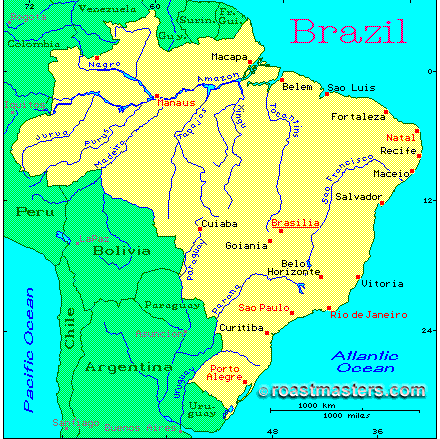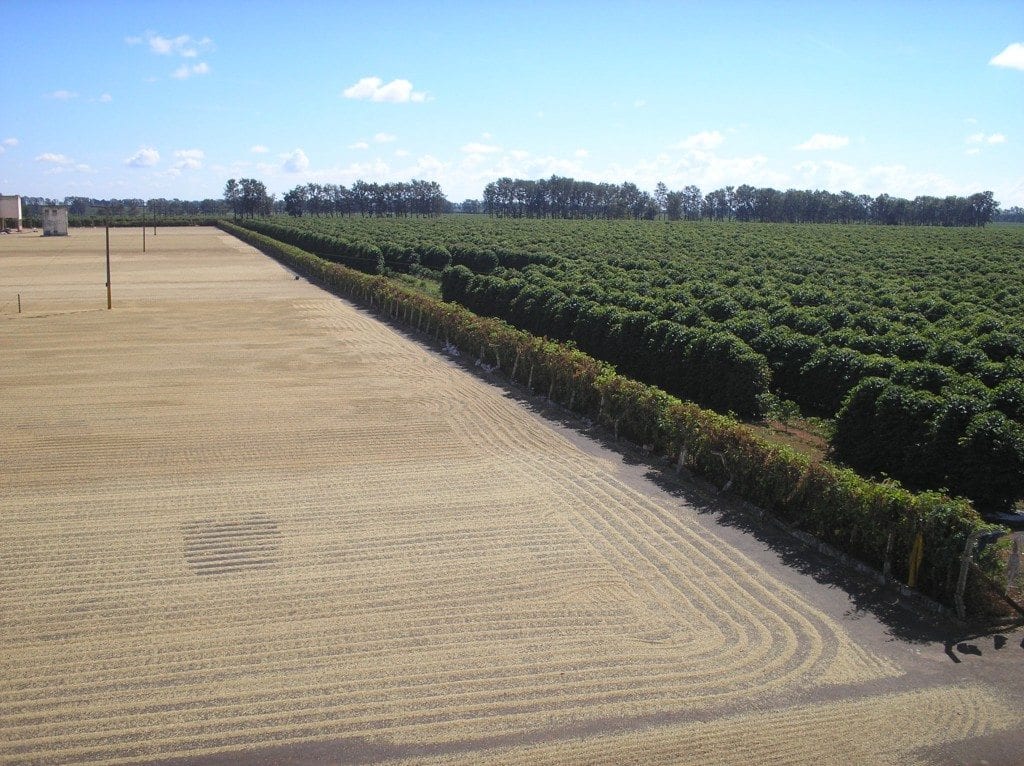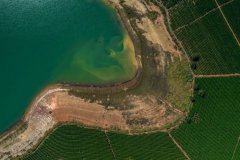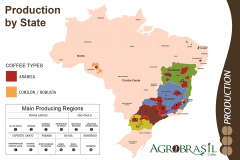Brazil's coffee bean production ranks first in the world Arabica coffee bean producing area coffee consumption new model
By 2020, Brazil's coffee production is expected to exceed 6160 million bags and 60 kg bags, up from 4930 million bags a year ago. Coffee crops are characterized by the biennial effect of harvest yields, in which the annual yield is very high and then relatively low. 2020 is the so-called "active bi-year". Brazil is by far the world's largest coffee producer, while in the domestic sector, the commodity accounted for about 5 per cent of agricultural output in 2019. Nevertheless, the acreage of Brazilian coffee has been on an overall downward trend for a decade and has been compensated for by an increase in average production in recent years.

Coffee variety
The Arabica variety, one of the earliest coffee varieties ever planted, is usually associated with finer, more aromatic coffee, accounting for nearly 70% of Brazil's production in 2019. Although Arabica is more sensitive to biennial effects than Robusta coffee, the higher market price of the variety # 39; offsets lower yields. In fact, Arabica coffee earned nearly 18 billion Brazilian reais in Brazil in 2019.
The following is the data on coffee production in Brazil from 2010 to 2020.
Characteristics
60 kg bag output million
2020 *
61.63
2019
49.31
2018
61.66
2017
44.97
2016
51.37
2015
43.24
2014
45.34
2013
49.15
2012
50.83
2011
43.48
2010
48.09
In December 2020, Brazil exported the most coffee in the world. The capacity is about 4.3 million bags of 60 kg coffee.

Global coffee industry
Coffee is the second largest trading commodity in the world (after oil). All coffee is grown in the south of the world and consumed mainly in the north of the world. According to 2015 data, the Dutch have the highest per capita consumption of coffee
With regard to the fundamentals of the market, the total production of Brazilian coffee increased from 1.3399 billion bags in 2010 to about 171 million bags in 2018. The origin of coffee can be traced back to Ethiopia in 1000 AD. It is thought that Arab merchants brought it to North Africa and from there it spread to Asia and Europe. The amazing rise of coffee as a commercial commodity began with large-scale plantations in Latin America in the late 18th century. By the 19th century, Brazil accounted for more than 70% of the world market.
With the increasing importance of boutique coffee, fair trade, organic coffee and even "bird-friendly" coffee, new consumption patterns have emerged. Coffee bar chains have expanded rapidly, although these outlets end up consuming "experience" with very low relative coffee content. The coffee bar chain sells not only "good" coffee, but also atmosphere and social orientation. The global coffee chain has experienced a "latte revolution" in which consumers can choose from hundreds of coffee varieties, origin, brewing and grinding methods, seasoning, packaging and atmosphere. Retail coffee prices continue to rise, roasters' profit margins continue to rise, and coffee farmers' prices are lower than production costs.
Important Notice :
前街咖啡 FrontStreet Coffee has moved to new addredd:
FrontStreet Coffee Address: 315,Donghua East Road,GuangZhou
Tel:020 38364473
- Prev

Flavor characteristics of coffee beans in Sao Paulo, Brazil 2021 the yield of Brazilian coffee decreased due to drought
After a record harvest in 2020, Brazil is likely to see one of the worst declines in coffee production in 2021. The drought brought by La Nina has hit new crops during the critical flowering period and is likely to depress the yield of Brazilian coffee. In the course of Brazil's history and economic development, coffee cultivation in Brazil has undergone significant changes, especially in terms of production location.
- Next

Brazilian Coffee History Story Market Development main producing areas introduce the best coffee flavor and taste characteristics in the world
Which part of Brazil mainly produces coffee? Brazilian coffee is mainly produced in southeastern Brazil, especially Minas Gerais, Parana and Sao Paulo. Sao Paulo has become the largest and most industrialized city in Brazil, mainly because of the coffee trade, but the state of Minas Gerais accounts for about half of the country's coffee exports. Is Brazilian coffee the best? Coffee in Brazil
Related
- Detailed explanation of Jadeite planting Land in Panamanian Jadeite Manor introduction to the grading system of Jadeite competitive bidding, Red bid, Green bid and Rose Summer
- Story of Coffee planting in Brenka region of Costa Rica Stonehenge Manor anaerobic heavy honey treatment of flavor mouth
- What's on the barrel of Blue Mountain Coffee beans?
- Can American coffee also pull flowers? How to use hot American style to pull out a good-looking pattern?
- Can you make a cold extract with coffee beans? What is the right proportion for cold-extracted coffee formula?
- Indonesian PWN Gold Mandrine Coffee Origin Features Flavor How to Chong? Mandolin coffee is American.
- A brief introduction to the flavor characteristics of Brazilian yellow bourbon coffee beans
- What is the effect of different water quality on the flavor of cold-extracted coffee? What kind of water is best for brewing coffee?
- Why do you think of Rose Summer whenever you mention Panamanian coffee?
- Introduction to the characteristics of authentic blue mountain coffee bean producing areas? What is the CIB Coffee Authority in Jamaica?

